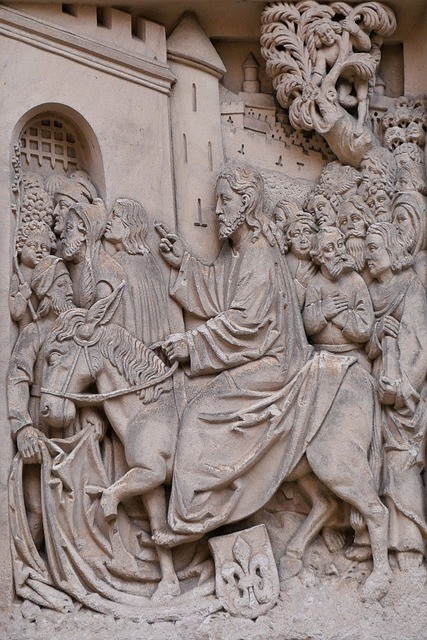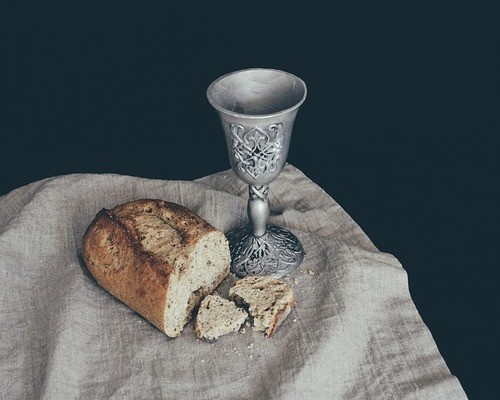The Last Supper and Garden of Gethsemane:
Scripture Readings: - Jesus washes the disciples' feet (John 13:1-17)
- The Last Supper and institution of Communion (Matthew 26:17-30)
- Jesus prays in the Garden of Gethsemane (Matthew 26:36-46)
- Jesus is arrested (Matthew 26:47-56)
Daily Devotional"Is it nothing to you, all you who pass by? Look and see if there is any sorrow like my sorrow, which was brought upon me, which the LORD inflicted on the day of his fierce anger." (Lamentations 1:12)
On Thursday of Passion Week, we enter the Upper Room and the Garden of Gethsemane, witnessing some of the most intimate and agonizing moments of Jesus' journey toward the cross. Here we see both the depth of His love and the weight of His suffering.
The evening begins with an act of service. John 13:1-17 records how Jesus, "having loved his own who were in the world, he loved them to the end". Knowing His hour had come, Jesus removes His outer garments, wraps a towel around His waist, and washes His disciples' feet—including those of Judas, His betrayer. This humble act of service becomes a living parable of the greater cleansing He would soon accomplish through His blood.
"If I then, your Lord and Teacher, have washed your feet, you also ought to wash one another's feet" (v. 14), Jesus instructs them. The Kingdom of God operates by an inverted logic—the greatest must become servants, and leadership is demonstrated through sacrifice. The foot-washing prefigures the ultimate service Jesus would render through His death.
At the Passover meal, Jesus institutes the Lord's Supper (Matthew 26:17-30). Taking bread and wine—elements of the traditional Passover—He infuses them with new meaning: "Take, eat; this is my body... Drink of it, all of you, for this is my blood of the covenant, which is poured out for many for the forgiveness of sins" (vv. 26-28). In this sacred moment, Jesus establishes the memorial that Christians would observe for millennia to come.
The ancient words from Lamentations resonate powerfully with what follows: "Is it nothing to you, all you who pass by? Look and see if there is any sorrow like my sorrow". After the supper, Jesus enters the Garden of Gethsemane and experiences sorrow beyond human comprehension. Matthew records that Jesus "began to be sorrowful and troubled" and confessed to His disciples, "My soul is very sorrowful, even to death" (26:37-38).
Three times Jesus prays, "My Father, if it be possible, let this cup pass from me; nevertheless, not as I will, but as you will" (v. 39). His prayer reveals both His human desire to avoid suffering and His commitment to the Father's redemptive plan. The cup He faced contained not just physical pain but the spiritual agony of bearing humanity's sin and experiencing separation from the Father.
While Jesus prays, His disciples sleep. Their inability to "watch and pray" for even an hour foreshadows their coming failure and flight. When Judas arrives with an armed crowd, Jesus submits to arrest, refusing to call on heavenly armies that could rescue Him. "But how then should the Scriptures be fulfilled, that it must be so?" (v. 54).
Today, consider the contrast between Jesus' full awareness of His coming suffering and His willing surrender to the Father's will. His example teaches us that true love expresses itself in sacrificial service and submission to God's purposes, even when the path leads through sorrow.
Reflection Questions- How does Jesus' example of foot-washing challenge your understanding of leadership and service?
- What significance does communion hold in your spiritual life, and how might you approach it with renewed appreciation?
- When have you experienced a "Gethsemane moment" of needing to surrender your will to God's? What helped you through it?
- In what situations do you need to pray, "Not my will, but Yours be done" right now?








